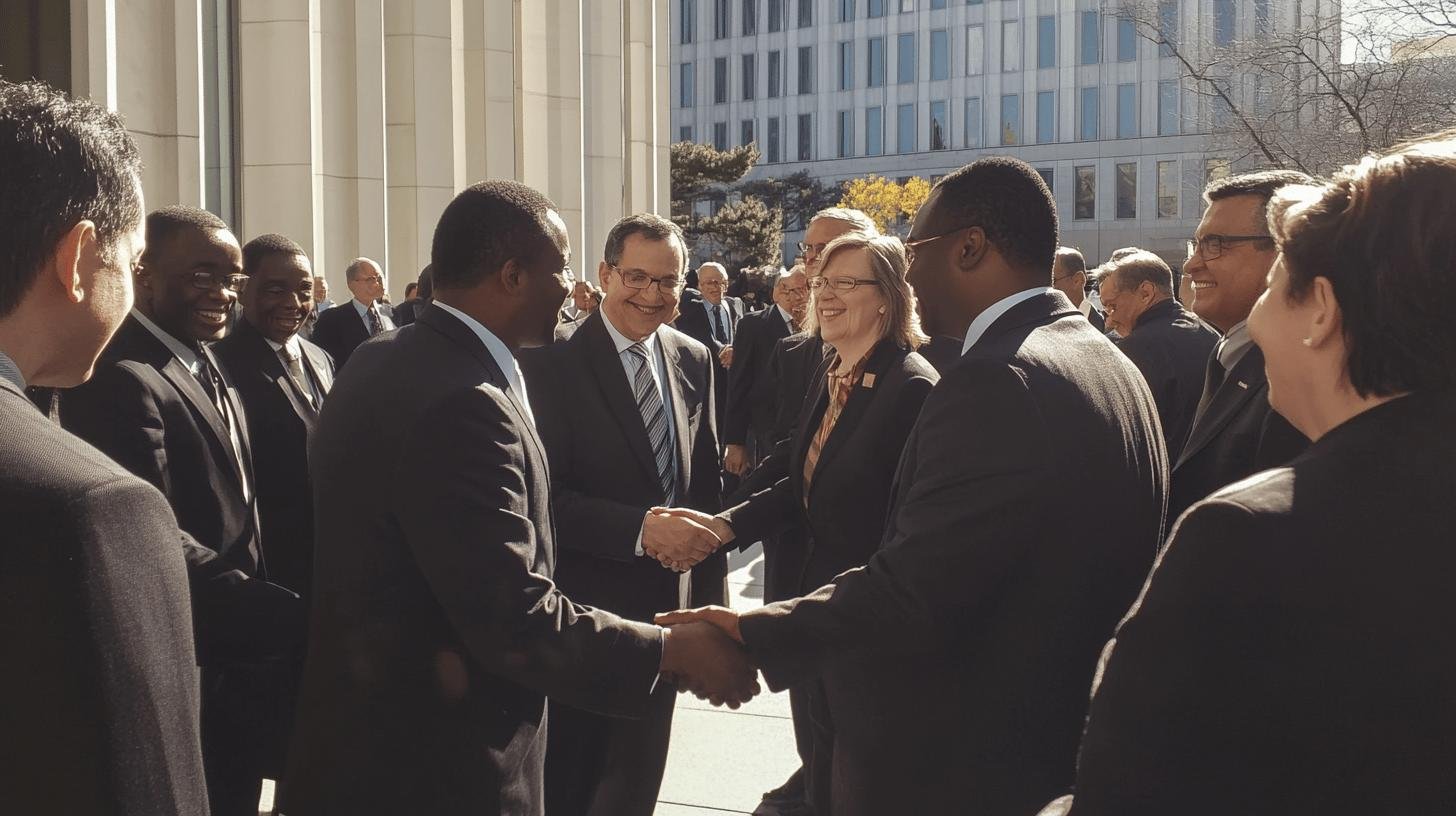TL;DR:
- Economic liberty allows individuals and businesses to make their own economic choices with minimal government interference.
- Key principles include private property rights, free markets, voluntary exchange, and contract freedom.
- Government’s role is to protect property rights, enforce contracts, and promote fair competition while preventing monopolies.
- Government intervention can distort markets, limit operations, reduce innovation, and increase compliance costs.
- Historical examples include laissez-faire policies and deregulation movements that spurred growth.
- Economic liberty correlates with strong GDP growth and elevated living standards.
- High economic freedom observed in Singapore and Switzerland leads to prosperity, innovation, and enhanced quality of life.
Is economic liberty the secret sauce to prosperity, or a recipe for disaster? As government footprints grow and new regulations crop up, we must weigh the balance between freedom and control. Economic liberty means people and businesses get to call the shots, with minimal government meddling. It’s all about owning your stuff, trading freely, and sticking to deals.
But should the government sit back completely, or step in to keep things fair? This article explores how the principles of economic liberty shape our growth and greatness. Dig in to see why this topic affects your wallet and your rights.
Understanding Economic Liberty in Government
Economic liberty means allowing people and businesses to make their own economic choices. This involves deciding what and how to produce, and for whom, without too much government interference. It focuses on private property rights, free markets, and voluntary exchange. By letting individuals manage resources, economic liberty aims to boost personal freedom and prosperity.
Key principles of economic liberty include owning property and entering contracts freely. Free markets let goods and services be exchanged voluntarily, driving competition and innovation. This freedom prompts businesses to enhance efficiency and quality, giving consumers better choices at lower prices. Voluntary exchange ensures transactions occur only when both parties consent, naturally balancing supply and demand.
The government’s role is to create a stable environment for economic liberty to thrive. This means protecting property rights and enforcing contracts, crucial for trust in transactions. Governments should ensure fair competition by preventing monopolies that stifle market freedom. Though some regulation is needed to avoid market failures, it shouldn’t hinder free economic activity.
The Role of Government Intervention and Regulatory Impact

Recent examples show a trend towards more government control over the private economy. Up to 2010, there were significant steps like using taxpayer money to bail out struggling banks. What impact does this have on economic liberty? It often reduces business autonomy, as seen with federal control over executive pay in large firms.
The effects of regulation on economic liberty can be both positive and negative. On one hand, regulations help ensure fair competition and deter unethical practices. On the other, they might stifle innovation and burden businesses with high compliance costs. Free market principles suggest minimal interference to let supply and demand self-regulate. But where is the line between needed oversight and overreach?
Here’s a list of key effects of government intervention:
- Distortion of market prices
- Limitation on business operations
- Reduced incentives for innovation
- Increased compliance costs
- Potential monopoly creation
Government intervention stands in contrast to free market systems. In a free market, little regulation fosters competition and innovation. Economic liberty thrives here, allowing pursuit of opportunities without bureaucratic barriers. By contrast, systems like socialism with significant government control often limit freedoms, centralizing decision-making and reducing autonomy.
Historical Examples and Theories Supporting Economic Liberty
History shows crucial times of minimal government intervention. A prime example is the laissez-faire policies of the 19th century, where governments largely stayed out of business activities, allowing markets to self-regulate. This spurred rapid industrial growth and innovation. The deregulation movements of the late 20th century are another example, with government oversight reduced, industry efficiency thrived.
Key theories backing economic liberty include classical liberalism and neoliberalism. Classical liberalism, from the 18th century, emphasizes individual freedom and limited government, advocating for minimal state control over economic activities. Neoliberalism, emerging in the 20th century, echoes these ideas, highlighting the benefits of free markets and global trade. Both argue that less government interference fosters entrepreneurship and economic growth.
| Theory | Example |
|---|---|
| Classical Liberalism | 18th-century policies promoting free trade |
| Neoliberalism | 20th-century global trade agreements |
| Laissez-faire | 19th-century industrial growth in the West |
Economic Liberty and Its Impact on Economic Growth and Individual Rights

Economic liberty drives growth by encouraging competition and resource efficiency. With minimal restrictions, businesses innovate to stay competitive. This innovation boosts economic growth and improves jobs, products, and services. It allows markets to allocate resources based on supply and demand, optimizing production and distribution.
Regarding individual rights, economic liberty empowers people to pursue dreams without unnecessary barriers. It supports career choice, fostering entrepreneurship and creativity. When individuals innovate freely, they contribute to technological advances and economic vibrancy. This freedom nurtures a culture of thriving new ideas, benefiting society.
| Economic Freedom | GDP Growth | Standard of Living |
|---|---|---|
| High | Strong | Elevated |
| Moderate | Moderate | Average |
| Low | Weak | Diminished |
But can too much economic liberty be problematic? Critics cite potential downsides like increased inequality and exploitation. Without certain regulations, market failures can hurt consumers and workers. Balance is crucial, ensuring liberty without sacrificing fairness and safety. The right blend of freedom and oversight can protect rights while promoting prosperity.
Case Studies and Comparative Analysis of Economic Systems
Economic systems differ in government involvement. These differences affect prosperity. Systems with minimal interference, like free markets, typically promote economic liberty. This freedom encourages decision-making and fosters innovation and growth. On the other hand, systems like socialism, with high state control, might limit personal freedoms and economic dynamism. The level of government intervention impacts resource allocation, efficiency, and rights.
Case Studies of Economic Liberty
Let’s examine real-world examples. Singapore and Switzerland are two countries with high economic freedom. How do they perform economically? Both show strong growth and high living standards. Singapore’s open trade policies and minimal regulation have made it a global financial hub. Switzerland’s stability and protection of property rights attract businesses and investors, illustrating how economic liberty can lead to prosperity and innovation.
What lessons can we learn? Countries embracing economic liberty often see better outcomes, like higher growth and improved quality of life. The successes in Singapore and Switzerland suggest that reducing government barriers can unleash human potential and drive progress. These examples benefit movements advocating for policies that minimize government intervention, guiding nations seeking to enhance economic freedom and prosperity.
Final Words
Economic liberty in government revolves around allowing individuals and businesses to decide their economic path without excessive interference. It thrives on principles like secure property rights and free markets.
Yet, government intervention can either bolster or limit this liberty, as shown in recent years with bailouts and executive compensations. Historical perspectives, such as laissez-faire policies, illustrate the potential benefits of minimal regulations.
While economic liberty promotes growth and innovation, a balance is required to prevent inequality. Successful case studies, like Singapore, demonstrate the prosperity linked with well-managed economic freedom.
FAQ
What is economic liberty in government?
Economic liberty means individuals and businesses have the freedom to make economic choices without excessive government interference. It relies on private property rights, free markets, and voluntary exchange principles.
Why is economic freedom important?
Economic freedom supports higher economic growth, boosts innovation, and leads to efficient resource allocation. It allows individuals to pursue their economic interests, which can drive prosperity and improve living standards.
What is economic liberalism in government?
Economic liberalism advocates for minimal government intervention in economic activities. It supports free markets, private property, and competitive marketplaces to boost efficiency and innovation.
What is economic equality in government?
Economic equality involves ensuring everyone has equal access to economic resources and opportunities. It’s about reducing disparities in wealth and income to allow fair contribution and benefit from the economy.
What is an example of a liberty in government?
A clear example of liberty in government is the freedom of speech. It’s a right allowing individuals to express opinions without fear of government censorship or punishment.
How does government intervention impact economic liberty?
Government intervention can support economic liberty by creating stability through regulations that ensure fair play. However, excessive intervention can hinder freedom, leading to inefficiencies and stifling innovation.
What are some historical examples of economic liberty?
Historical examples include the laissez-faire policies of the 19th century and deregulation in the late 20th century. These events often led to increased economic activity due to reduced government involvement.
How does economic liberty impact individual rights?
Economic liberty protects individual rights by allowing personal choice in economic matters. It is linked to personal responsibility and encourages innovation by letting individuals capitalize on their talents and ideas.
What are case studies of countries with high economic freedom?
Countries like Singapore and Switzerland show high economic freedom levels. They have strong economies, sound regulations, and limited government intervention, leading to prosperity and higher living standards compared to more controlled economies.


